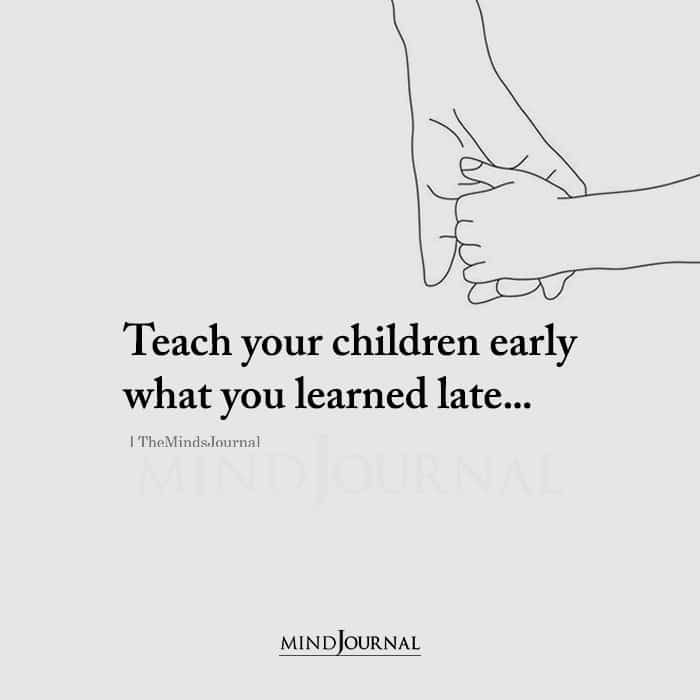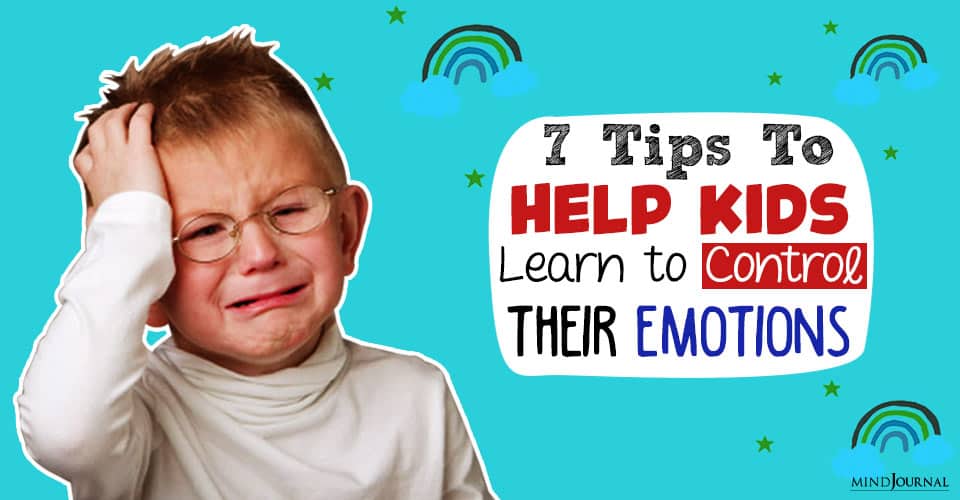Why is it difficult for some kids to manage their emotions? How to cultivate emotional regulation in children? Read on to know some parenting tips to help your kids learn to control emotions.
“I love your posts, but my husband is afraid that if we allow our kids to get upset as you suggest, they’ll never learn to control their emotions. Don’t we need to just say No sometimes?” – Rachel
All of us worry about our kids learning to control their emotions. After all, it’s emotions that so often get us off track and into trouble. And of course, we need to just say No sometimes. Kids can’t run into the street, throw their food at each other, or pee on their baby brother.
But setting limits on children’s behavior doesn’t mean we need to set limits on what they feel. In fact, when we don’t “allow” our child to get upset, we’re unwittingly making it harder for our child to learn to manage his emotions.
That’s because you can’t actually keep your child from getting upset, whether you “allow” it or not. Telling your child not to cry won’t keep him from being upset; it will just give him the message that there’s something scary or shameful about his emotions, so he’d better try to hide them.
Unfortunately, when humans repress emotion, those emotions are no longer under conscious control. So they pop out un-regulated, causing the child to lash out or act out.
It’s that dysregulation that scares parents when our child seems completely out of control. But kids don’t get dysregulated because we “allow” their emotions. They get dysregulated when they need to express emotion but feel they “aren’t allowed to.”
So, instead, they try to push the feeling down. That may work at the moment, but it makes kids tense and anxious and demanding and whiney. And eventually, those repressed feelings that are no longer under conscious control bubble up to the surface and explode, resulting in behavior that is even more out of control.
So, denying emotion or making ourselves wrong for having emotions doesn’t help us control them.
Here’re 7 Parenting Tips For Emotional Regulation In Children
Notice that all the action items start with what “WE” — the parents — do.
1. We Model Self-Regulation.
That means that we resist our own little “tantrums” such as yelling. Instead, we take a parent time-out to calm ourselves down. If our child is too young for us to leave the room, we do as much processing at other times as we can, so we can stay calmer while we’re with our kids.
Then, at the moment, we slow things down and take responsibility for how we express our emotions. After all, children learn from us. When we yell, they learn to yell. When we speak respectfully, they learn to speak respectfully. Every time you model in front of your child how to stop yourself from acting badly when you’re angry, your child is learning emotional regulation. Practicing self-regulation will help you cultivate emotional regulation in children naturally.
Please note that I’m not suggesting that you should “stuff” or repress your emotions. That would just make them harder to control! I’m suggesting that you handle emotions responsibly, by noticing the feelings and tolerating them — but NOT taking action.
Every time you do that, you’re strengthening your neural networks to manage your emotions. That’s exactly how we’re trying to teach emotional regulation for kids. And of course, we need to be role models.
(Not perfect yet? Don’t worry. Most of us are still working on this. In fact, it’s the work of a lifetime. Just keep taking steps in the right direction.)

Related: New Parents, Listen Up: Passion and Parenting Can Co-Exist
2. We Prioritize A Deep Nurturing Connection.
Babies grow the neural wiring to soothe themselves by being soothed by their parents. But even older children need to feel connected to us or they can’t regulate themselves emotionally. When we notice our child getting dysregulated, the most important thing we can do (after calming ourselves) is to try to reconnect.
When kids feel that we’re on their side, even when we need to say no to them, they WANT to cooperate — so that warm, delighted connection eliminates a lot of “misbehavior.”
3. We Accept Our Child’s Feelings, Even When They’re Inconvenient.
“Oh, Sweetie, I know that’s disappointing….I’m so sorry things didn’t work out the way you wanted.” When empathy becomes our “go-to” response, our child learns that emotions may not feel good, but they’re not dangerous, so she accepts and processes them as they come up, instead of stuffing them, where they just get uglier.
She knows someone understands, so she doesn’t have to yell to be heard. And when our support helps her learn that she can live through bad feelings and the sun will come out the next day, she begins to develop resilience. That’s how kids learn to control emotions!
4. We Make It Easy To Talk About Emotions.
Research shows that children grow in emotional intelligence when we talk about our own feelings, acknowledge theirs, and wonder aloud about those of other people: “That little boy in the stroller is crying …. I wonder what’s wrong? What do you think he needs?”
Is it important to teach kids words for their emotions? Yes, it validates their experience and helps them understand others. But labeling emotions when tempers rage just makes the child feel analyzed and talking of any kind takes the child out of her heart and into her head, which makes it harder to work through the feelings.
Instead, in those tough moments, focus on simply accepting your child’s emotions and offering compassion, even if you need to limit your child’s actions.
Related: Modern Parenting May Hinder Brain Development: Studies Suggest
5. We Limit Our Child’s Actions As Necessary.
Our goal is to create a safe space for the child to feel their emotions. But that doesn’t ever mean we let him hit us or break things.
We all know that children aren’t yet capable of making all their own decisions in life, even when they’re thinking well. When they’re angry, it’s not surprising that they do and say things they’ll be sorry for later. (Don’t you?)
Simply move away if your child tries to hit you. If you need to hold his hands to keep him from hitting, do so, but keep that to a minimum. And remember that rage needs to feel heard or it escalates. If you can acknowledge that you see how angry your child is, and empathize with why they’re upset, they usually won’t need to show you how upset they are by hitting.
6. We Model Repair And Care.
Your angry child is not a bad person, but a hurting, very young human. When kids can’t control emotions, it’s because they can’t, at that moment. This is not the time to teach him not to be rude. If you can stay compassionate, your child will feel safe enough to surface, feel and express the tears and fears that are driving his anger and acting out. If you can help him feel safe enough to actually feel those tears and fears, they’ll evaporate — and the anger and acting out will vanish, too.
Later, after everyone is calm, it always helps to talk with your child about what happened — not to criticize or lecture, but to apologize, empathize and restore connection: “We were all so upset that we started yelling. But that’s no way to work things out with someone you love. I’m sorry I lost my temper. I know you must have been so upset, too, to say/do those things. I’m ready to listen now to what you were upset about.”

Shouldn’t you tell your child they are not allowed to yell at you, or whatever they did that upset you? Of course! But they can’t take that in until they feel heard. So wait until you first listen and offer understanding. Then, you might say “I see why you were so upset that you yelled at me. But you know that you never need to yell to get my attention. I will always listen and try to help.” From this place of mutual understanding, your child will almost certainly apologize, and they will be much more motivated in the future to express themselves without yelling.
7. We Guide Behavior But Resist The Urge To Punish.
Spankings, time-outs, consequences, and shaming don’t give kids the help they need to learn to control emotions. In fact, the message kids get is that the emotions that drove them to “misbehave” are bad. So kids try to repress those emotions, and their emotional backpack gets stuffed even more full of bad feelings.
That’s one of the reasons that punishment actually leads to more misbehavior — those feelings keep bubbling up out of the emotional backpack looking for a healing, and your child lashes out because the emotions feel so scary. Instead of punishing, help your child stay on track with loving guidance and emotion coaching to help them process emotions.
Related: Why Tough Love Parenting Style Does More Harm Than Good
8. We act like the grown-up.
When we aren’t able to take charge in our home, setting appropriate limits and creating a positive tone, kids don’t feel safe. They worry that we aren’t able to meet their emotional needs, so they start working hard to take charge themselves. That’s one reason children get bossy and demanding.
Even worse for their development, they stop coming to us with their tears and fears. They don’t trust us with their vulnerability. They have to keep their defenses up, so they develop a chip on their shoulder.
And that means they can’t relax and tackle things that scare them (otherwise known as age-appropriate developmental tasks), like learning to work out conflicts with peers and taking the risk of trying new things.
The solution is to this “attitude” is to help the child feel safe, by committing to being a calm, emotionally generous parent who sets empathic limits and models emotional intelligence.
Kids who are parented this way learn to “control” their emotions because they have a healthy emotional life, not because they’ve been told not to feel, or be punished or shamed for their feelings. They learn that:
- Emotions aren’t bad, they’re just part of the richness of being human.When you allow yourself to feel, the emotions begin to fade away.
- We don’t usually have a choice about what we feel, but we always have a choice about how we choose to act.
Related: How To Help Children Who Struggle With Self-Consciousness And Feel More Easily Slighted
Does this demand a lot of the parents? Absolutely! But what better motivation to grow than your love for your child?
And if you’re still working on regulating yourself, you’ll be glad to hear that your kids will almost certainly be better at managing their emotions than you are. Why? You’re doing the hard work now to help them learn how. And most of the work — surprise! — is on yourself.
Please share these tips for building emotional regulation in children with anyone who you may think will find it valuable and helpful.
Written by: Dr. Laura Markham
Originally appeared on: AhaParenting
Republished with permission











Leave a Reply